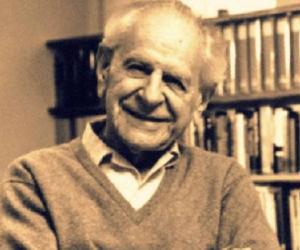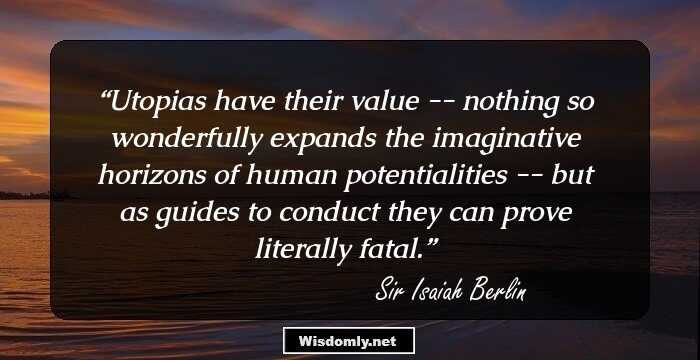29 Best Quotes By Karl Popper
Sir Karl Raimund Popper, proclaimed as one of the greatest philosophers of his era, is known for his bold hypothesis, critical rationalism and falsification. This Austrian- British philosopher was renowned for his evolutionary trial and error view of the growth of knowledge. He raised several eyebrows with his theory of Active Darwinism and the paradox of tolerance. In the field of politics, he was famous for his potent fortification of liberal democracy and its principles. He played a key role in the development of philosophy of science as an independent branch of study. Popper received fellowship from esteemed institutes such as London School of Economics, Cambridge, Royal Society and King's College London. He was knighted by Queen Elizabeth II and received the Humanist Laureate Award from the International Academy of Humanism. He described science as an art of systematic over simplification. We have collected Popper’s quotes from his theories, journals, publications, views etc. Here is a collection of enlightening quotes from one the greatest philosophers to have lived in contemporary history.
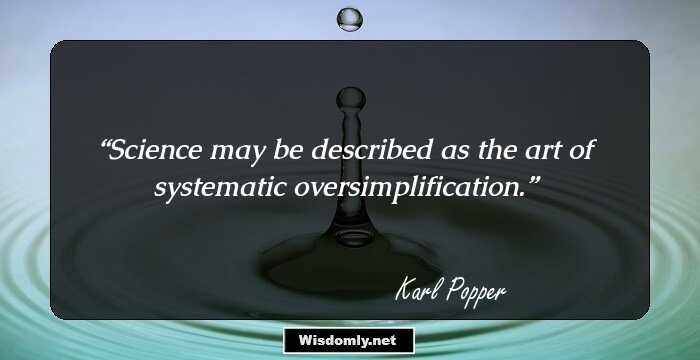
Science may be described as the art of systematic oversimplification.
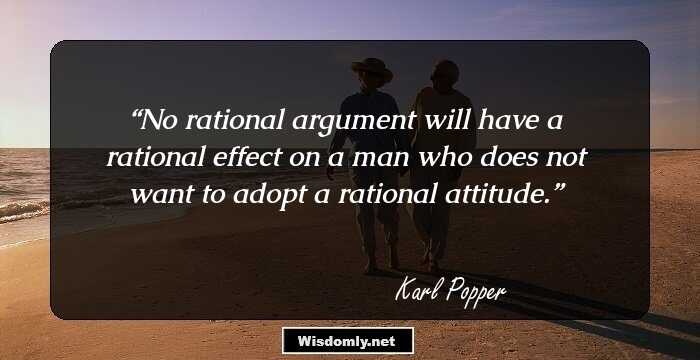
No rational argument will have a rational effect on a man who does not want to adopt a rational attitude.
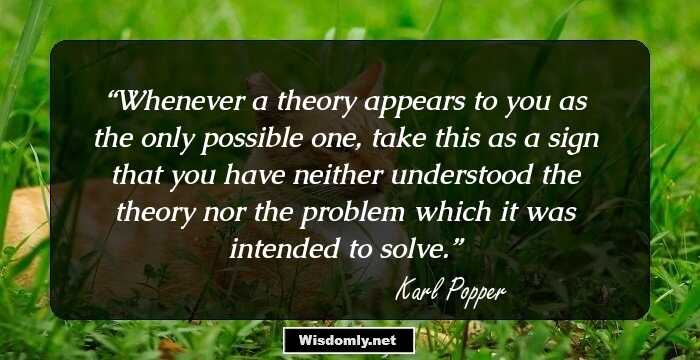
Whenever a theory appears to you as the only possible one, take this as a sign that you have neither understood the theory nor the problem which it was intended to solve.
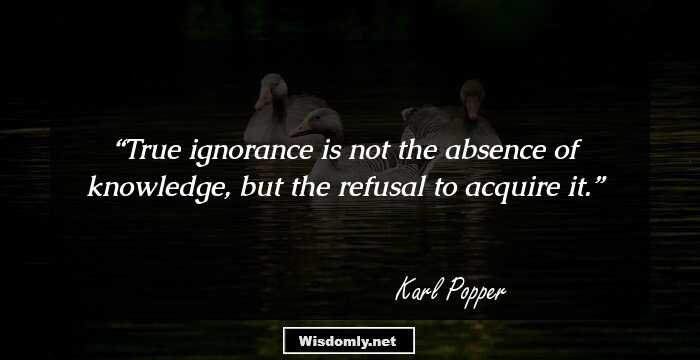
True ignorance is not the absence of knowledge, but the refusal to acquire it.
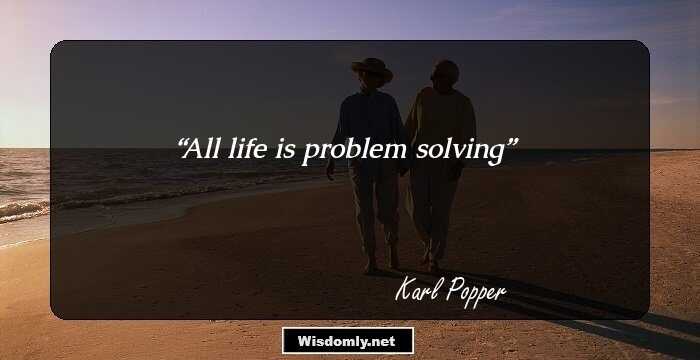
All life is problem solving
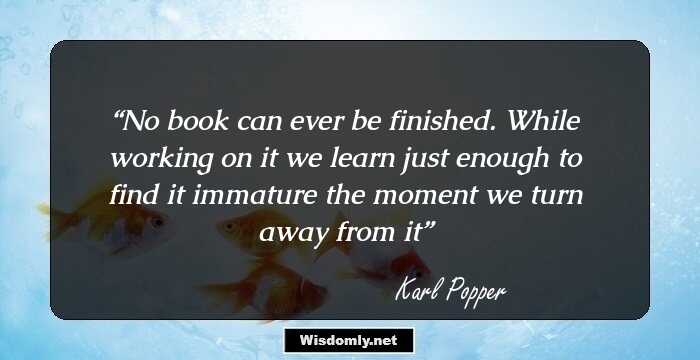
No book can ever be finished. While working on it we learn just enough to find it immature the moment we turn away from it
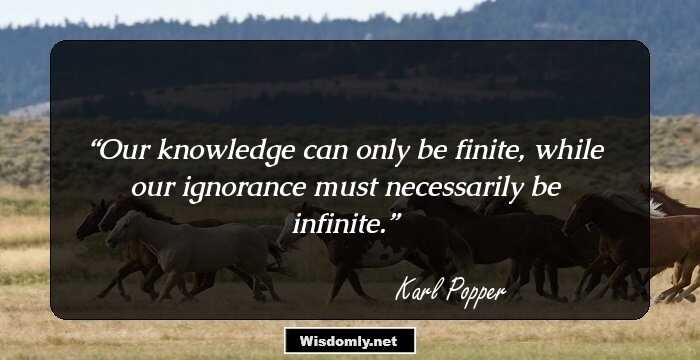
Our knowledge can only be finite, while our ignorance must necessarily be infinite.
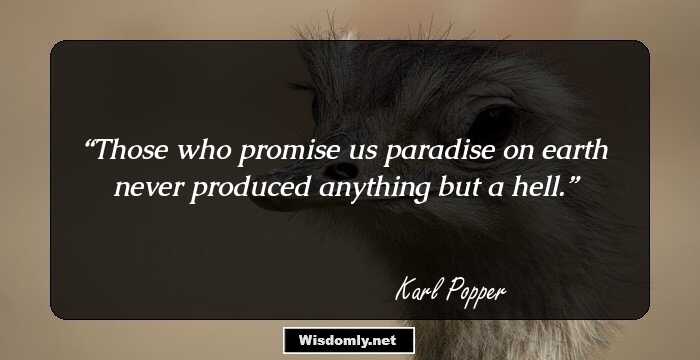
Those who promise us paradise on earth never produced anything but a hell.
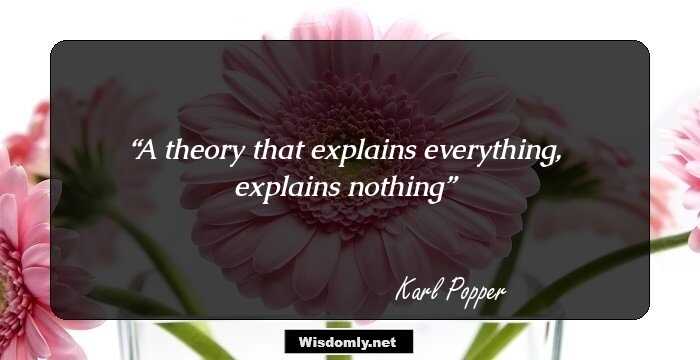
A theory that explains everything, explains nothing
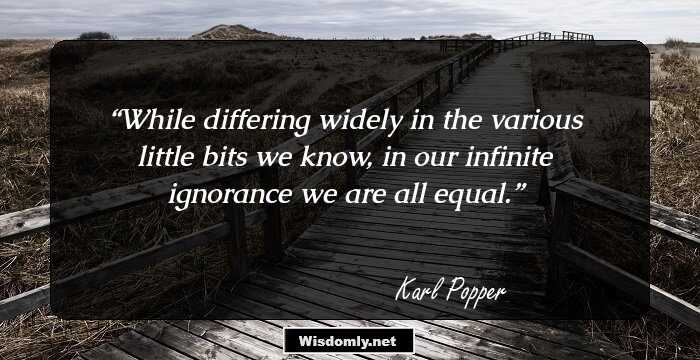
While differing widely in the various little bits we know, in our infinite ignorance we are all equal.
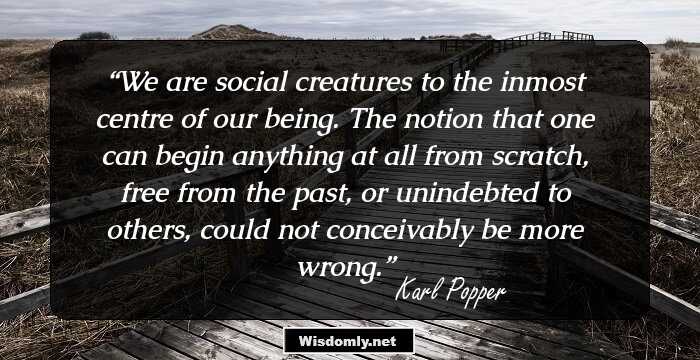
We are social creatures to the inmost centre of our being. The notion that one can begin anything at all from scratch, free from the past, or unindebted to others, could not conceivably be more wrong.
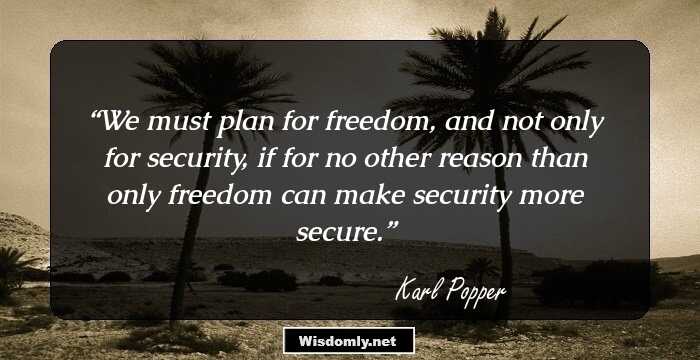
We must plan for freedom, and not only for security, if for no other reason than only freedom can make security more secure.
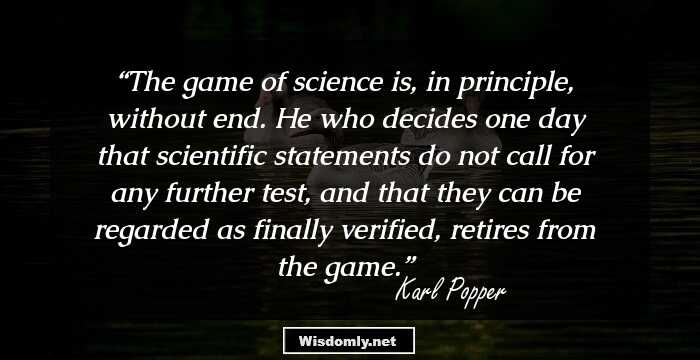
The game of science is, in principle, without end. He who decides one day that scientific statements do not call for any further test, and that they can be regarded as finally verified, retires from the game.
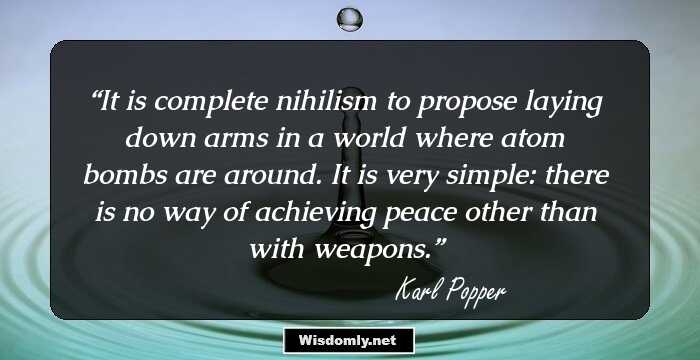
It is complete nihilism to propose laying down arms in a world where atom bombs are around. It is very simple: there is no way of achieving peace other than with weapons.
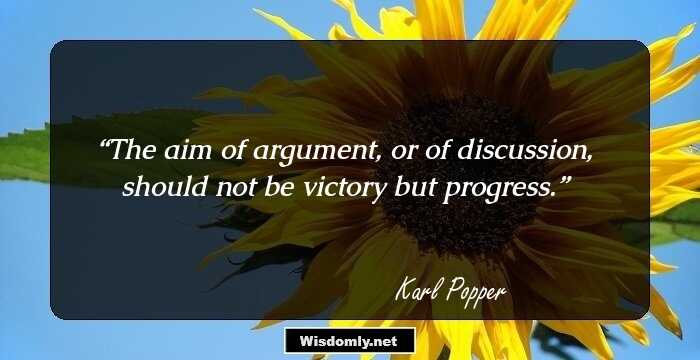
The aim of argument, or of discussion, should not be victory but progress.
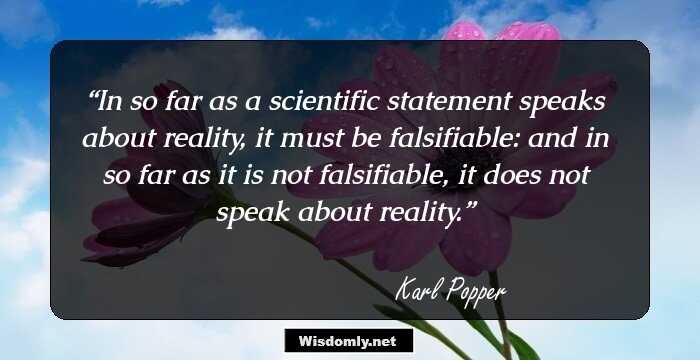
In so far as a scientific statement speaks about reality, it must be falsifiable: and in so far as it is not falsifiable, it does not speak about reality.
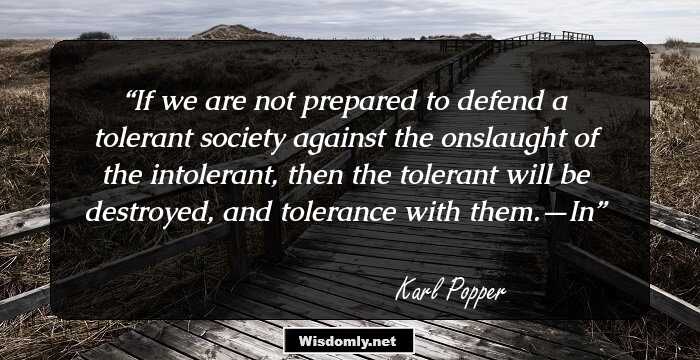
If we are not prepared to defend a tolerant society against the onslaught of the intolerant, then the tolerant will be destroyed, and tolerance with them.—In
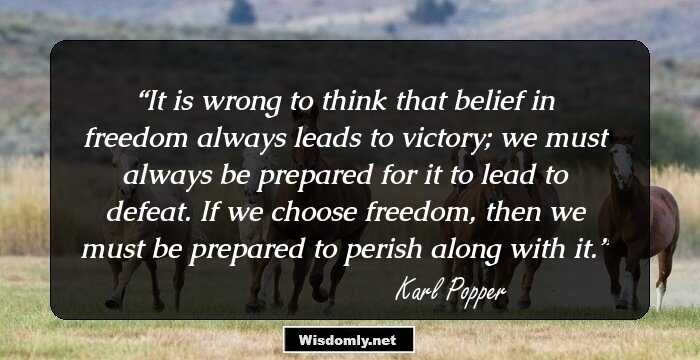
It is wrong to think that belief in freedom always leads to victory; we must always be prepared for it to lead to defeat. If we choose freedom, then we must be prepared to perish along with it.
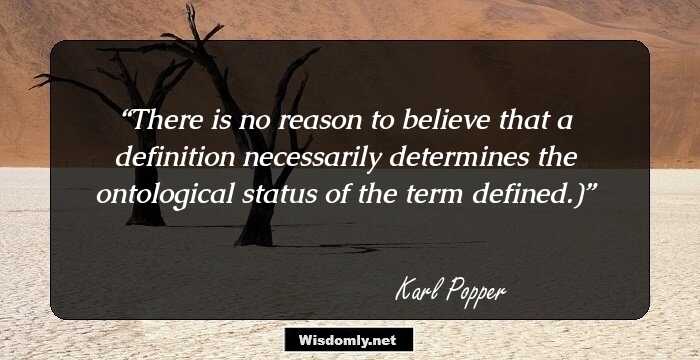
There is no reason to believe that a definition necessarily determines the ontological status of the term defined.)
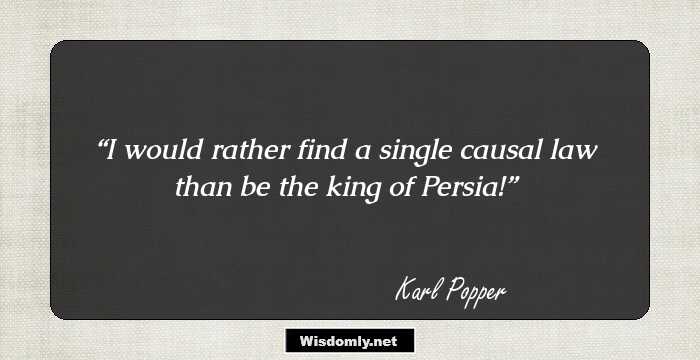
I would rather find a single causal law than be the king of Persia!
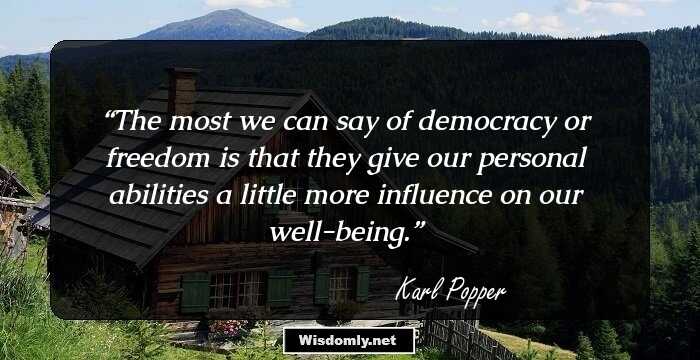
The most we can say of democracy or freedom is that they give our personal abilities a little more influence on our well-being.
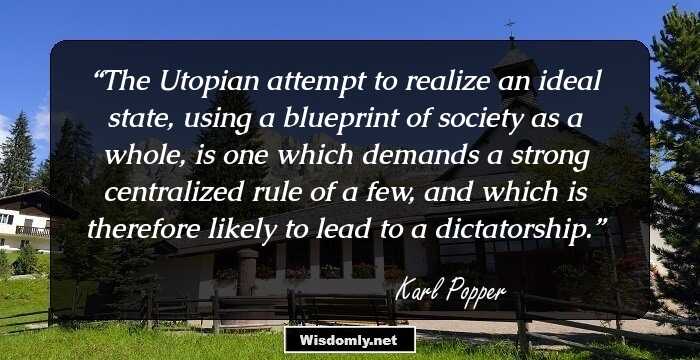
The Utopian attempt to realize an ideal state, using a blueprint of society as a whole, is one which demands a strong centralized rule of a few, and which is therefore likely to lead to a dictatorship.
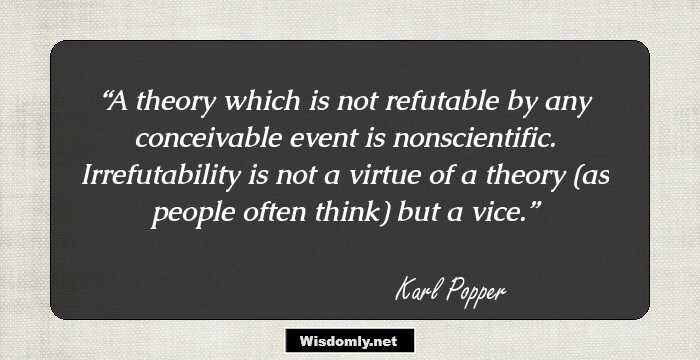
A theory which is not refutable by any conceivable event is nonscientific. Irrefutability is not a virtue of a theory (as people often think) but a vice.
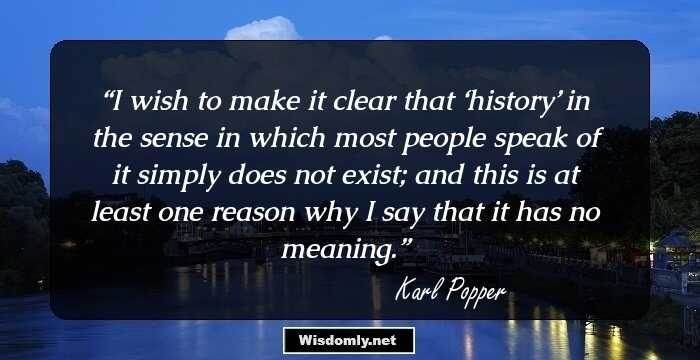
I wish to make it clear that ‘history’ in the sense in which most people speak of it simply does not exist; and this is at least one reason why I say that it has no meaning.
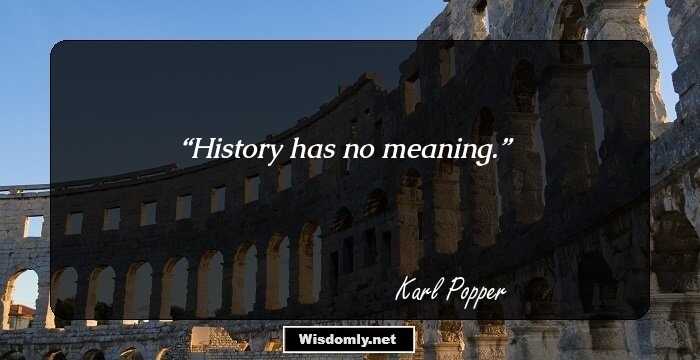
History has no meaning.
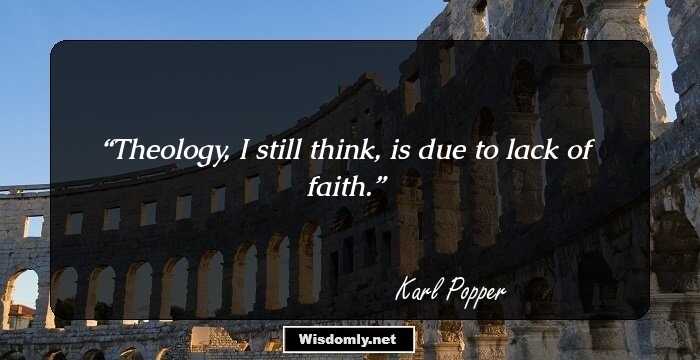
Theology, I still think, is due to lack of faith.
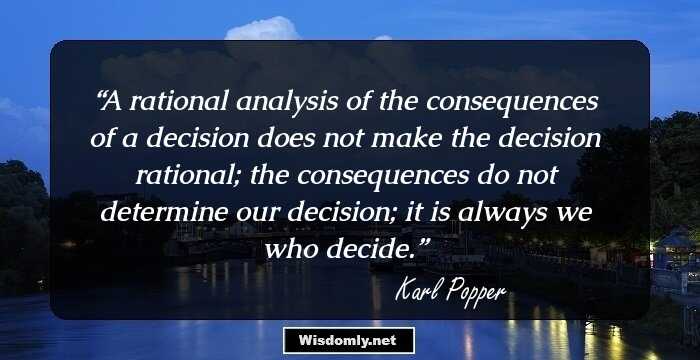
A rational analysis of the consequences of a decision does not make the decision rational; the consequences do not determine our decision; it is always we who decide.
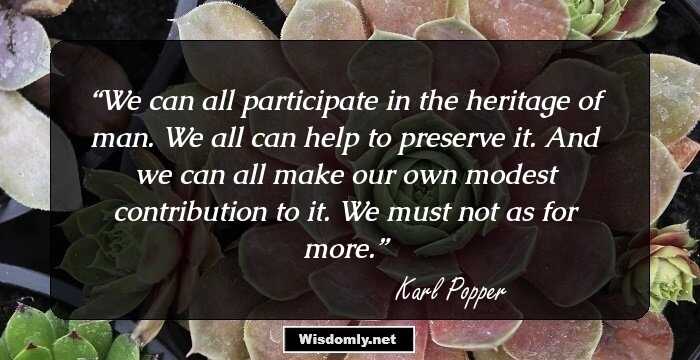
We can all participate in the heritage of man. We all can help to preserve it. And we can all make our own modest contribution to it. We must not as for more.
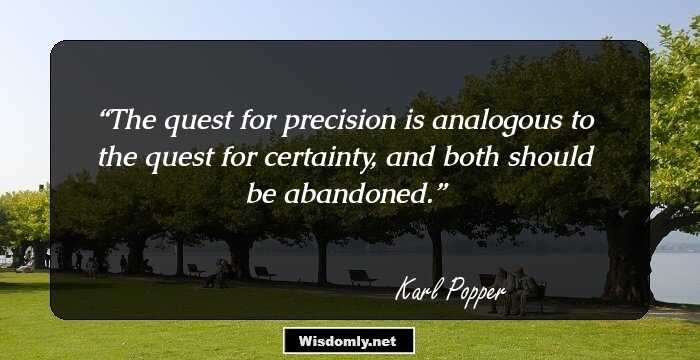
The quest for precision is analogous to the quest for certainty, and both should be abandoned.

